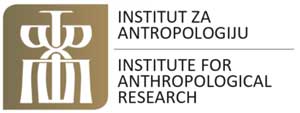On 4th December 2017, the Minister of Higher Education, Research and Innovation in France announced the finalists of the 5th edition of “Etoiles de l’Europe” award. The European program MEDIGENE (FP7-279171) received the award for Open Science for the study of the metabolic syndrome in Mediterranean countries. The award is is supposed to stimulate the coordination of European programs from France and was decided by an independent jury led by Prof Jean Chambaz (UPMC). By an interdisciplinary approach combining clinical genetics with anthropology and even archeology the MEDIGENE consortium* intended to define new markers for insulin resistance and to study the diversity of populations in the Mediterranean area to evaluate risk for long-term complications.
The coordinator – Florin GRIGORESCU researcher at INSERM in the UMR204 NUTRIPASS (IRD, University of Montpellier and SuprAgro), Montpellier France, the manager of the program Christophe NORMAND, team member Corinne LAUTIER and PDG of Intactile Design SA Yves RINATO participated to the ceremony in the presence of the Minister Miss Frédérique Vidal at the Museum du Quai Branly in Paris (http://www.horizon2020.gouv.fr).
The Institute of Anthropology in Zagreb (INANTRO) is a partner in the program and acknowledged the initiative from France as well as the EC for granting this program with 3M € between 2012-2016. INANTRO organized in 2015 the annual MEDIGENE meeting in Zagreb and invited the coordinator for plenary lectures. On June 17th in Dubrovnik during the 36th Anthropology and Health Conference (President Saša MISSONI) under the auspices of the Croatian Academy of Sciences and Arts in Zagreb (Prof Pavao RUDAN) members of the consortium debated on components of the metabolic syndrome in Mediterranean populations that would be associated with Neanderthal ancestry genes for lipid catabolism. On 22nd November 2017, Florin GRIGORESCU was nominated as honorary member of the Academy of Sciences and Arts. With the occasion of Hubert Maver 43rd School of Biological Anthropology he explained how Genetic Anthropology by studying diversity of population might help understanding genetics of complex diseases. Croatia also participated to the program with multiple samples for immigrant or native populations and collaborated with France on many aspects on genetics and anthropology.
MEDIGENE consortium : Florin Grigorescu (CO), Michel Pugeat and Christophe NORMAND (France), Ramon GOMIS, Josep Maria MACIAS (Spain), Catalina POIANA (Romania), Renato PASQUALI, Giorgio SESTI, Vincenzo TRISCHITTA and Davide LAURO (Italy), Agathocles TSATSOULIS (Greece), Elza KHUSNUTDINOVA (Russian Federation), Sonia ABDELHAK (Tunisia), Akila ZENATI (Algeria), Abdelhamid BARAKAT (Morocco), Ylli AGRON (Albania), Timo KANNINEN (BC platform, Finland), Ilhan SATMAN (Turkey), Yves RINATO (INTACTILE-Design SA, France) and Sasa MISSONI (Croatia)


